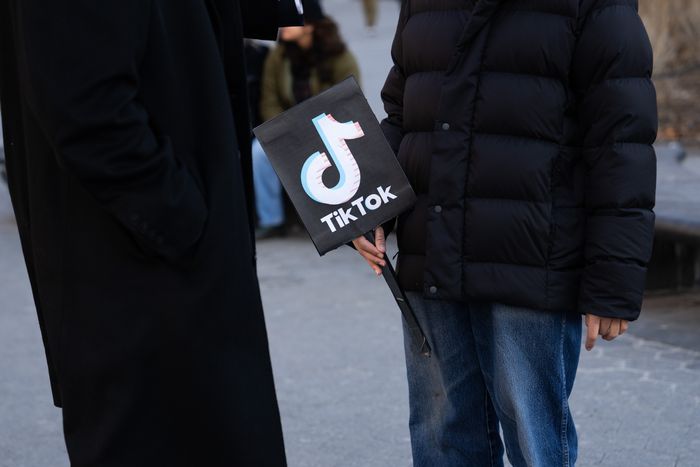
On January 19, the TikTok ban went into effect, leaving the digital future of the platform’s 170 million U.S. users up in the air … for about 14 hours. Then, Donald Trump took office and delayed the enforcement of the law for 75 days (one of nearly 100 planned executive orders). This ban stemmed from the Protecting Americans From Foreign Adversary Controlled Applications Act, a federal law that gives the government power to bar foreign-owned apps if they post a national security risk. Lawmakers from both sides of the aisle claimed that the Chinese government had the ability to mine Americans’ data from TikTok’s owner, ByteDance, and then deploy this information in alleged efforts to surveil U.S. users as well as peddle disinformation. Under the legislation, companies that allow people to access TikTok — such as Apple through its App Store and Google through its Play Store — cannot “distribute, maintain, or update (or enable the distribution, maintenance, or updating of) a foreign adversary controlled application’ either through a marketplace or internet hosting services.” While TikTok, CapCut, and other apps affected by the law are not currently available for download, they are still available for use.
TikTok has fought the ban, most recently before the Supreme Court. Free-speech advocates contend that the ban would violate First Amendment rights. But the justices sided with the government on January 17, writing in their decision that TikTok’s “scale and susceptibility to foreign adversary control, together with the vast swaths of sensitive data the platform collects, justify differential treatment.” So, what does this mean? Before the Supreme Court decision came down, Vulture spoke with Eva Galperin, director of cyber security at the Electronic Frontier Foundation, an international digital-rights group, to answer all your questions about the TikTok ban.
People who really want to keep using TikTok are wondering this: If you’re in the U.S., is there a way to get around the ban?
TikTok has said that users coming from the U.S. will be blocked, and they will be pointed toward a message that explains to them what the TikTok ban is and who is responsible, that they should contact their local representative. But also, that they will be giving them an opportunity to export their data. It is unclear whether or not a U.S.-based user would still get this message and this offer if they were coming from a non-U.S. IP address.
If it turns out that this is an entirely IP-address-based decision, then would it be possible to circumvent it by using a VPN that makes it look like you are coming from a non-U.S. location? Also, what’s a VPN?
VPN stands for virtual private network, and there are a lot of different kinds of VPNs. For example, many corporations run their own VPN services, and you are required to use their VPN in order to log in to the corporate intranet. But the way in which most people encounter VPNs in their day-to-day lives is usually through the commercial VPN market. A commercial VPN is an app, usually that you pay money for, sometimes available for free. It is an app that you can run on your device that will mask your traffic on the network on which you are located. So, on the network, people will not be able to see what websites you’re going to, for example. When it comes to the site that you are going to, it makes it look like you are coming from a different location. One of the most common uses of a VPN that makes it look like you are coming from a different location is usually to stream Netflix in order to access geo-blocked content.
Free VPNs are something that you should be very careful of, because when somebody offers you something for free, often it is because you are the product. The way that these companies make money is by selling the information about where you’re going and what you are doing online. They may also log your traffic so that if law enforcement comes to them and asks for the details of where you’ve been going or what you’ve been doing, they may hand those over. They may serve you ads, and those ads may be surreptitiously tracking you, or they could even be surreptitiously installing malware on your device, which is a very serious problem.
So if you want to watch a Netflix show from Poland or use TikTok, pay a couple bucks to use a good VPN?
Not every VPN that costs a couple of bucks is, by its very nature, good. You should be careful of anything that feeds you ads, and also you should take a look at the reputation of the VPN. Just go do a quick Google search on the name of the VPN company and see whether or not there have been any scandals with data leaks or with them doing sketchy things with the data they get from their users.
Will people be able to share TikToks in the U.S.? Or does it look like it’s just going to stop working right away?
That will be up to TikTok, because under this new law, TikTok is not required to do any of these things. TikTok is going beyond what they are required to do. And the reason for this is they want to make it very clear that this law is designed to silence U.S. TikTok users, and they would like to lay the blame directly at the feet of the people who are responsible for this.
So TikTok could shut off the lights immediately for U.S. users?
It is up to TikTok whether or not you are able to get to TikTok from a U.S. IP. You have to understand: This sort of censorship, there’s not a lot of infrastructure in the U.S. for banning apps. There’s a reason why no social-media platform has been banned in the United States thus far. The way in which the law appears to suggest this will work is that it will require U.S.-based app stores to remove TikTok from the store.
If you remove TikTok from the store, this does not remove TikTok from your phone, but what it does mean is that in the future, when there are updates to the TikTok app, you will not get those updates. Eventually, TikTok will stop supporting out-of-date versions of the client, and then you will stop having access to TikTok. This, I think, is how the people who wrote the law imagined that this would work. What TikTok is doing is they’re saying, if you’re telling us that we can’t have U.S. users, you’re telling us that we’re going to be blocked in the U.S., fine, we’ll be blocked in the U.S. — and everybody will know whose fault it is.
Do you have any sense of what platform people are going to next?
Based on reports that I have read, it sounds like TikTok users are sort of flocking to the Little Red Book, which is often translated into English as RedNote — which is absolutely a Chinese app, in Mandarin, based in mainland China, subject to mainland China rules about what you can and cannot say into on the app.
So, ironically, this might push people toward a platform that is almost undoubtedly monitoring them?
Yes, and it is my understanding that TikTok users are doing this on purpose.
Wait, what?
U.S. users are not under the impression that the Chinese government is not monitoring an app named after Mao’s Little Red Book. They are showing that they don’t care.
Are these Chinese-language speakers or everyone?
They’re largely English speakers. There are a lot of very funny memes on that platform right now of English speakers trying to learn Mandarin. To be fair, they have a point in a really convoluted sort of way. There is no evidence — and the U.S. government admits this in the TikTok case — that the Chinese government is collecting the data that TikTok has on users or using them for any kind of nefarious purposes. If the Chinese government wanted that data, they wouldn’t have to go to TikTok, they could simply buy it from any of the existing U.S. social-media platforms, all of whom sell it through a series of data brokers. The only way that we could really stop that is by having comprehensive data-privacy reform that addresses data brokers and all U.S.-based companies. Singling out a Chinese platform does not actually solve the problem in any way.
Creators on TikTok can make money in a couple different ways. Do they know what’s going to happen to the views-based money — will they get paid?
I don’t think TikTok has said anything about this, or at least TikTok has not said anything about this that I have seen.
Will a U.S.-based company buy TikTok?
There is a possibility that TikTok could spinoff its U.S. operations into a separate company and sell that to a U.S. buyer. That would allow TikTok to continue to be available to U.S. users in spite of this law. There is no indication thus far that this is what TikTok intends to do or that there is a buyer available.
What is Donald Trump doing about TikTok?
Trump filed an amicus brief, a friend-of-the-court brief, in the SCOTUS appeal in support of TikTok. There was no legal reasoning that I was able to discern, aside from Trump likes TikTok and he thinks it helped him get elected. Therefore, he thinks that TikTok should not be banned. I think it would also be to Trump’s advantage if TikTok had to spinoff its U.S. operations and sell them to a U.S. buyer, because it would allow him to sort of hand this off as a gift to one of his supporters. And it would allow him to extract concessions from the Chinese government. So I am guessing that would be his ideal situation.
This interview has been edited and condensed for clarity.


